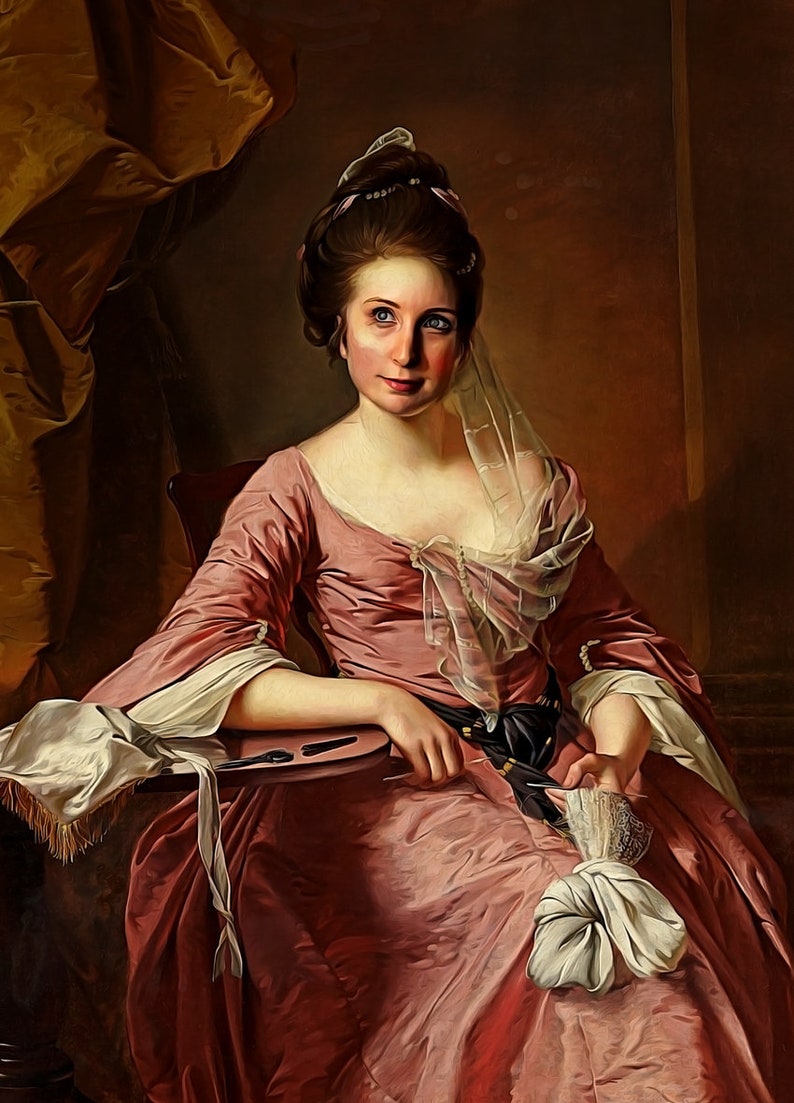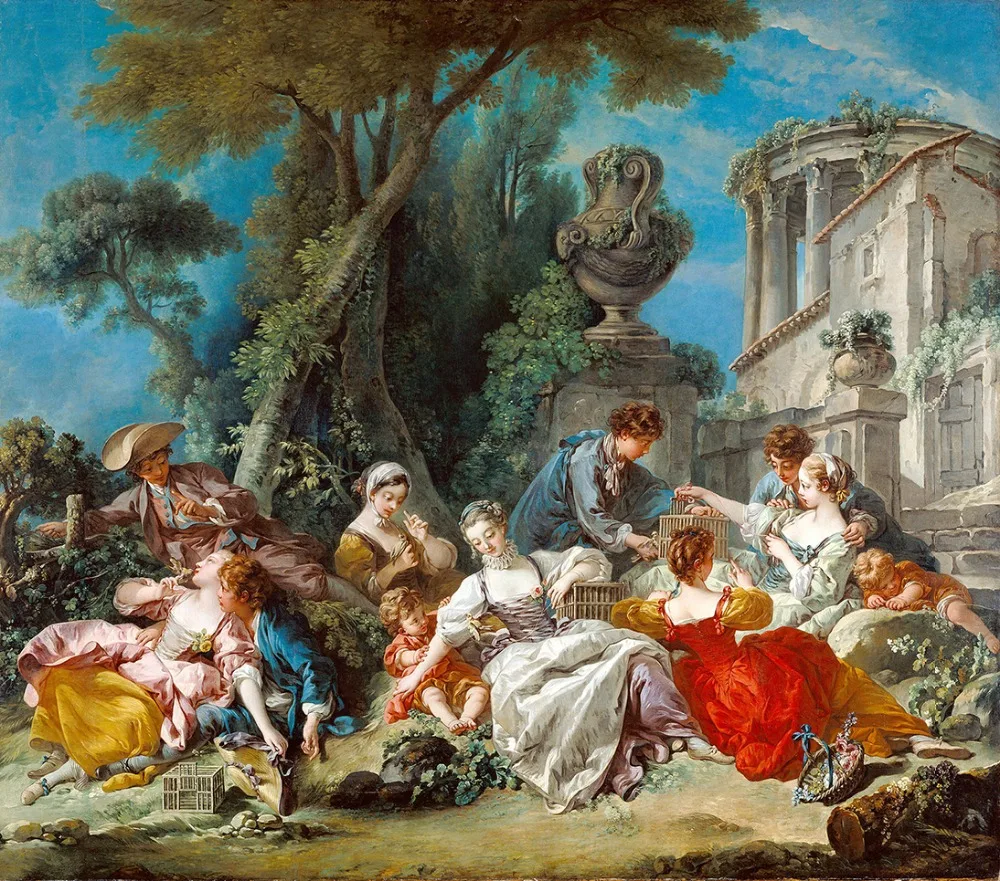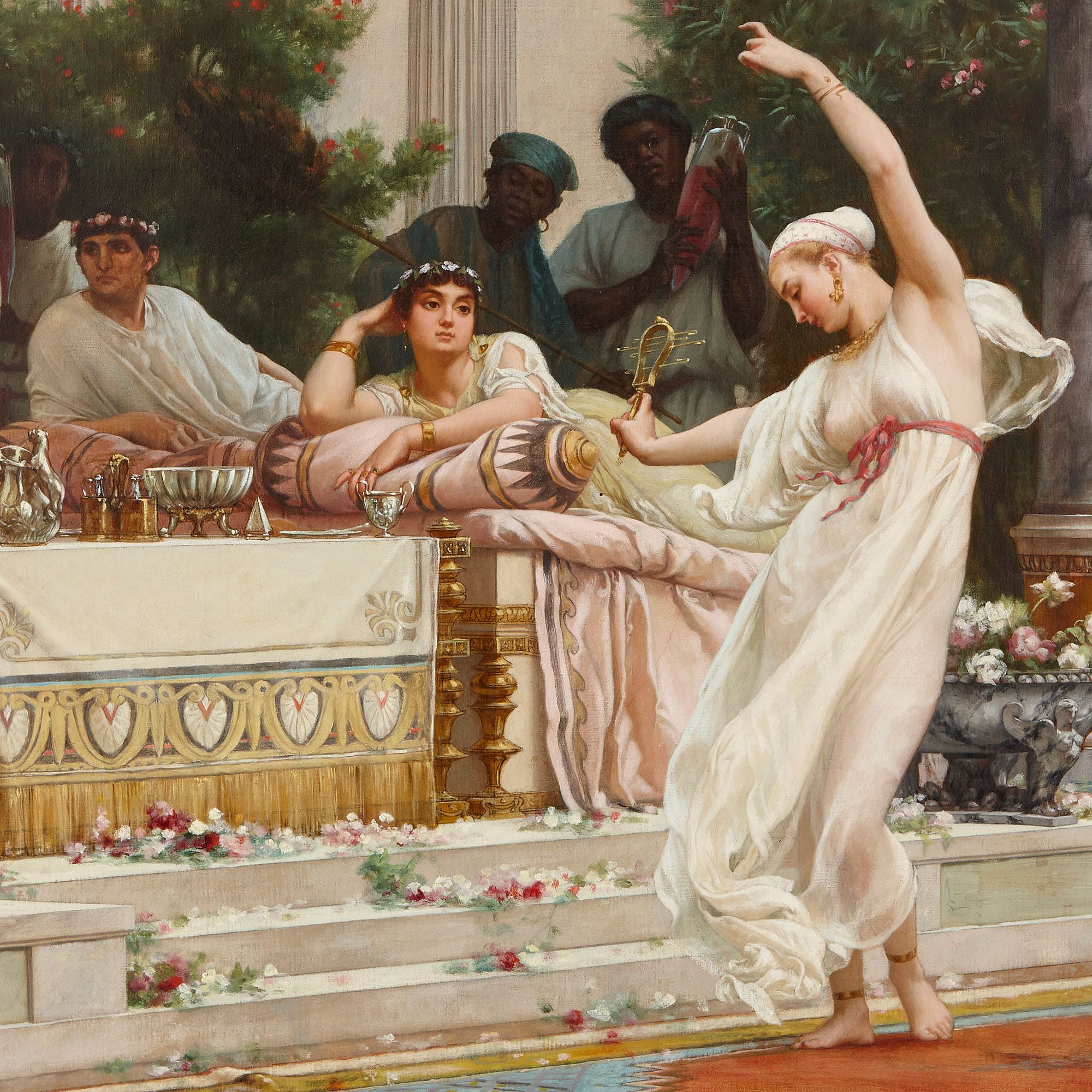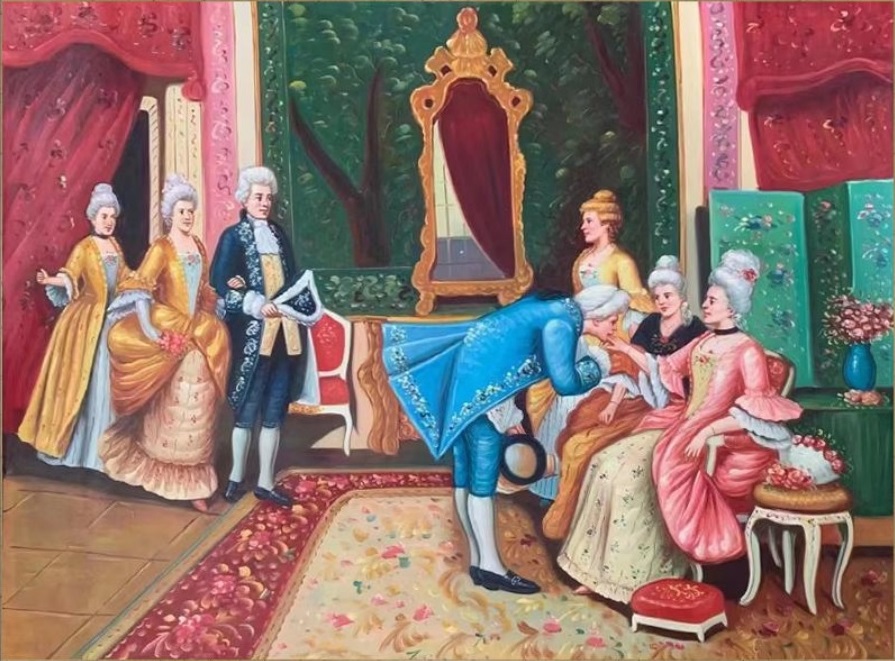
Custom Classic Portrait Oil Painting From Photo Renaissance Etsy UK
Renaissance art, painting, sculpture, architecture, music, and literature produced during the 14th, 15th, and 16th centuries in Europe under the combined influences of an increased awareness of nature, a revival of classical learning, and a more individualistic view of man.

7 Exceptional European Paintings Sotheby’s
Classical notions of proportion, balance, harmony, and elegance subtly permeate the sculptures, architecture, and paintings of many modern art movements. In this article, we are going to take a deep dive into the fundamentals of Classical art and explore its continued influence. Table of Contents [ Show] A Broad Overview of the Classical Aesthetic

An Inspired Age Selections of 18thcentury European Art from the Collection The Toledo Museum
By Lissa Poirot, updated on May 18, 2023 Nadar / Wikimedia Commons From Monet to Manet, Renoir to Rembrandt, Europe's legendary artists are so familiar to us that we can immediately identify their iconic works. Many of these artists' masterworks can be found in their hometowns, but there are also pieces showcased at institutions across the world.

Wallpaper ID 97088 / classical art, Europe, Arthur Hacker, 1894, The Temptation of Percival
European paintings have produced some of the most iconic and enduring works of art in history. From the classical traditions of European drawing to the revolutionary techniques of modern European art, these masterpieces have left an indelible mark on the art world.

Canvas Art Picture Print Painting European Classical Figure Oil Painting on Canvas Wall Art
Classical Art encompasses the cultures of Greece and Rome and endures as the cornerstone of Western civilization. Including innovations in painting, sculpture, decorative arts, and architecture, Classical Art pursued ideals of beauty, harmony, and proportion, even as those ideals shifted and changed over the centuries.

0622_MHB1719世纪欧洲宫廷油画图集_真迹扫描大图超高清书画图片资料下载TIF
Europe is the ultimate art destination. Its rich history spans thousands of years and every art movement. Europe's museums are world famous. The Louvre, Vatican Museums, Uffizi Gallery, British Museum, and more offer tremendous works of art.

European paintings
In this gallery, we present 50 of the most important Renaissance paintings created by the greatest artists from Jan van Eyck (c. 1390-1441) to Tintoretto (1518-1594). The paintings are presented in chronological order of artists and their works to give the viewer a better idea of the progression of Renaissance art from the mid-15th century to.

Ritratto femminile 15601565. Olio su tela. 51x42 cm. Collezione privata Renaissance portraits
The art of Europe, also known as Western art, encompasses the history of visual art in Europe. European prehistoric art started as mobile Upper Paleolithic rock and cave painting and petroglyph art and was characteristic of the period between the Paleolithic and the Iron Age. [1]

'A Summer Repast', large Roman classical painting by Boulanger Mayfair Gallery
In its purest form, classicism is an aesthetic attitude dependent on principles based in the culture, art and literature of ancient Greece and Rome, with the emphasis on form, simplicity, proportion, clarity of structure, perfection, restrained emotion, as well as explicit appeal to the intellect. [1]

11 MustSee Works of European Art Sotheby’s
This rational, proportionate approach to painting represented the French attitude toward the Revolution and the philosophies of the Enlightenment, or the Age of Reason, which called for serious, clear-headed paintings and subjects that celebrated the excellence of natural form.

Barend Cornelis Koekkoek Summer Wooded Landscape With A Castle 19th century landscape, 18th
Ancient European Classical Painting Minoan palaces are the most representative of this period and were richly decorated. Thus, Minoan painting was unique in that it used wet fresco techniques; it was characterized by the small waist, fluidity and vitality of the figures and because it was enriched with elasticity, spontaneity, and the vitality of high-contrast colors.

High Society, Royalty and Aristocracy, Portraits of Franz X. Winterhalter, Commissioned by Kings
Classical texts on farming and natural histories by Pliny, Cato, and Lucretius also recorded some of the traditional lore associated with plants. Many of these ideas and associations were passed on to scholars and artists during the Renaissance,. "Food and Drink in European Painting, 1400-1800." (May 2009)

The Country Lovers Pieter Aertsen 150875 Old master, Painting, Kunsthistorisches museum
10 of the Most Famous Paintings in Europe The Raft of Medusa by Théodore Géricault, 1819 Louvre Museum in Paris, France Raft of Medusa by Théodore Géricault, 1819 The Raft of Medusa by Théodore Géricault (1791-1824) is known for bridging two district artist movements: Classicism and Romanticism.

classical art Europe John Martin 1821 Belshazzar's Feast 1821 (Year) painting 4K wallpaper
Classicism was a separate trend in Baroque European painting, a style of art in which adherence to accepted aesthetic ideals takes precedence over the individuality of expression. In simple terms, it was a restrained, harmonious style that believed in the primacy of design, rather than color or expression. During the Baroque era of the 17th.

Masterful Artistry Classical European Painting
Greatest Renaissance sculptor ( Pieta, David) and painter, renowned for his Genesis and Last Judgement Sistine Chapel frescoes in Rome. Raphael (Raffaello Santi) (1483-1520) Greatest exemplar of High Renaissance painting, noted for his Papal frescoes. Sebastiano del Piombo (1485-1547) Best known for portraits.

Canvas Art Picture Print Painting European Classical Figure Oil Painting on Canvas Wall Art
classicism, aesthetic attitude and art style based on or reiterating themes, techniques, and subjects of art from ancient Greece and Rome (spanning approximately from the formation of Greek city-states in the 8th century bce to the decline of the Roman Empire in the 5th century ce ).